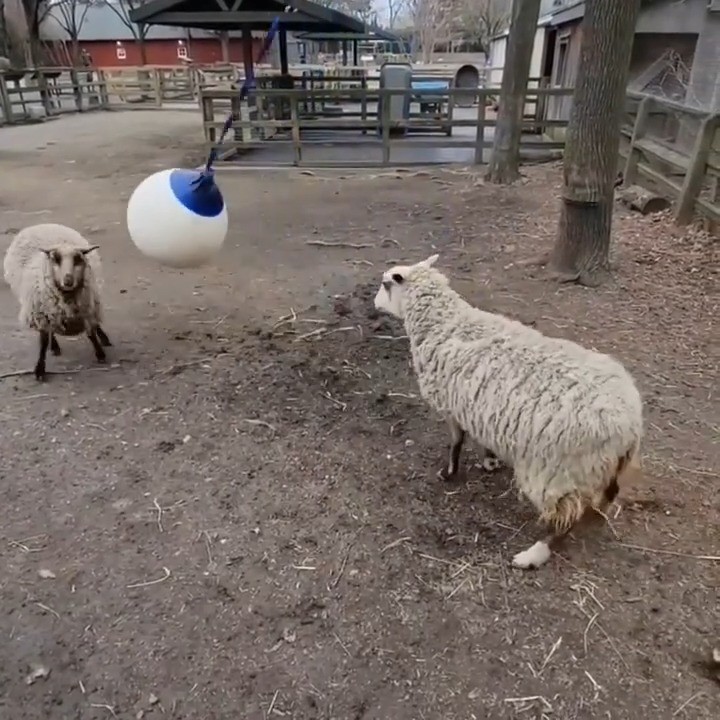- Importance of enrichment activities for zoo animals
- Behavioral traits and natural behaviors of Shetland sheep
- The role of tetherball in enrichment and its physical and mental benefits
- Insights from zookeepers and their observations
- Emphasis on conservation and educational approaches in zoo management
Enrichment activities are vital for the well-being of zoo animals. These activities, designed to stimulate both mind and body, play a crucial role in promoting the health and happiness of animals in captivity. Enrichment helps to mimic the natural behaviors that animals would exhibit in the wild, making them more adaptable and active. In the case of Shetland sheep, an intriguing enrichment strategy is the use of tetherball, which can have fascinating implications for their behavior and overall well-being.
Shetland sheep are known for their hardiness and are typically used for their wool. However, they also exhibit behaviors and traits that are important to understand in a zoological setting. Naturally, Shetland sheep engage in head-butting, a behavior that can be part of social dynamics or a form of play. This head-butting is a critical aspect of their behavioral repertoire, and providing a safe outlet for this behavior is essential for their psychological and physical health.
Integrating tetherball into their routine serves as both an enriching and challenging activity. Tetherball requires the sheep to stay alert, gauging the movement and direction of the ball. This exercise not only engages them physically but also mentally, as they must predict and react to the ball’s trajectory. According to their keepers, this moving target helps the sheep refine their coordination and focus, providing a stimulating environment that encourages natural behavior.
Keeper Jose, who has closely monitored the sheep during these sessions, notes that tetherball has become a favorite among these animals. Their enthusiasm for the game is palpable, and it significantly reduces any signs of stress or boredom. The positive impact of such activities highlights the importance of innovative enrichment strategies in captive environments.
In addition to the immediate benefits for the sheep, such enrichment activities serve an educational purpose for visitors. Observing animals engaging in natural behaviors can foster greater empathy and understanding among zoo-goers. It underscores the significance of ethical animal care and the intricate needs of different species.
The dedication to zoo management and wildlife conservation is evident in the enrichment programs designed for animals like the Shetland sheep. Every activity, from tetherball to other interactive games, is crafted to mimic their natural behaviors and promote well-being. This approach combines scientific knowledge with practical animal care, ensuring that the animals lead enriched lives while also serving as ambassadors for their wild counterparts.
In conclusion, if tetherball were an Olympic sport, our Shetland sheep would undoubtedly take home the gold. Their engagement with this activity is a testament to the effectiveness of well-planned enrichment programs. It is not just about physical exercise but also about mental stimulation and overall well-being. By continually refining these programs and observing animal responses, zoos can provide environments that nurture and sustain both the body and mind of their inhabitants, furthering the cause of wildlife conservation and education.
*****
Source Description
If tetherball were an Olympic sport, we think our Shetland sheep would win gold! 🥇
During this enrichment activity, our sheep are able to engage in their natural head-butting behavior. A moving target also challenges them to pay close attention to what direction the ball is coming from, according to their keepers.
📹: Keeper Jose


